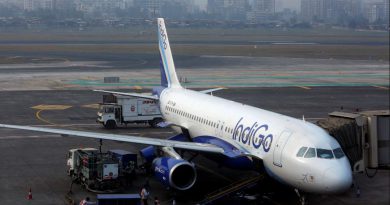Saudi Arabia imports record Russian fuel oil in June as trade grows
Singapore (Reuters) – Saudi Arabia imported record volumes of discounted Russian fuel oil in June, a near 10-fold annual increase to meet summer power generation demand and maintain crude exports despite OPEC+ production cuts, according to traders, analysts and Kpler data.
For Russia, its growing oil trade with the world’s biggest exporter enables it to keep output flowing to global buyers despite Western sanctions that have shut its access to key markets including Europe.
Saudi Arabia imported a record 910,000 metric tons (193,000 barrels per day) of fuel oil from Russia in June, data from analytics firm Kpler showed.

The kingdom has ramped up fuel oil imports from Russia this year following the European Union’s ban on Russian products. Saudi’s Russian fuel oil imports hit 2.86 million metric tons for the first half of 2023, exceeding the 1.63 million metric tons for all of 2022, the data showed.
Saudi Arabia’s energy ministry did not respond to a Reuters query. State oil giant Saudi Aramco (2222.SE) declined to comment.
The predominantly high-sulphur fuel oil (HSFO) cargoes from Russia mostly end up at Saudi oil-fired power plants, said Royston Huan, fuel oil and feedstocks analyst at consultancy Energy Aspects.
Saudi Arabia said this month it would extend an extra 1 million barrels per day output cut for a second month in August to support prices as part of a pact between the Organization of the Petroleum Exporting Countries and its allies including Russia, a group known as OPEC+.
“We believe there is a linkage to the cuts, as Saudi Arabia will be incentivized to prioritize their crude exports, therefore prioritizing fuel oil utilities burn over crude oil burn,” Huan said.
Traders and analysts said the OPEC kingpin has been importing cheap Russian fuel oil as well as diesel and ramping up exports in order to generate higher profits.
Saudi Arabia is forecast to boost fuel oil exports to 1.2 million metric tons in July, up from 750,000 metric tons in June, Kpler data showed, as margins for the fuel strengthened.
Asia’s HSFO crack – the margin for refiners from producing the residue fuel from Dubai crude – is at a discount of $7.83 a barrel on Wednesday, up nearly 50% from the start of the second quarter, based on Refinitiv data.
“The recent strength in HSFO cracks were likely due to concerns of tighter HSFO availability after Saudi extended their 1 million bpd voluntary cuts,” analysts from consultancy FGE said in an email.



